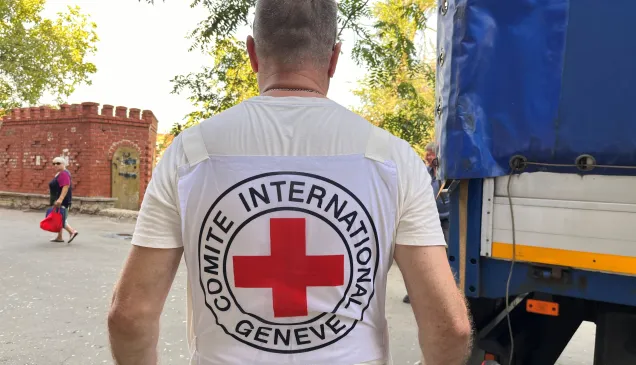The ICRC emphasizes that violations of IHL/IHRL worsen humanitarian suffering

The ICRC participated in the 60th Session of the African Commission on Human and Peoples' Rights (ACHPR), held from 8 to 22 May 2017, in Nyamey, Niger. The ICRC made an opening statement highlighting the humanitarian consequences of armed conflicts.
The Deputy Head of the ICRC Delegation to the African Union, Ms Diane Misenga Kabeya, emphasized that violations of international human rights law (IHL) and international humanitarian law (IHL) worsen the humanitarian consequences of armed conflicts for civilians. Ms Diane Misenga highlighted that the ICRC has pursued its humanitarian engagement in conflict and violent crises in Africa working to protect and assist victims of violations of IHL/IHRL.
In regards to migration, she further stressed that humanity must be the first principle of migration policy, and the vulnerability and needs of migrants must be the decisive factors guiding national and international response. The ICRC further reiterated the recommendation for States who have not yet done so, to expedite their ratification of the Kampala Convention, and for all States Parties to take the necessary actions to strengthen implementation of the Convention.
The ICRC also expressed concern about the conditions of detention of many particularly vulnerable individuals because they are dependent on overburdened legal and administrative systems and outdated prison systems. She added that, in order to assist the authorities in responding to these detention challenges, the ICRC is supporting the ACHPR in the dissemination of the Guidelines on the Conditions of Arrest, Police Custody and Pre-Trial Detention in Africa, commonly referred to as the "Luanda Guidelines". In this regard, this year the ICRC marked the commemoration of the African Pre-trial detention Day by launching the Swahili version of the guidelines in Tanzania.
Ms Diane Misenga further expressed that the ICRC welcomes the Commission's approach to developing Principles on the Declassification and Decriminalization of Minor Offenses, trusting that these principles will contribute to the relaxation of national criminal policies and thus contribute to the strengthening of inadequate normative frameworks.
In conclusion, the ICRC reiterates its commitment to contribute to the concrete and pragmatic reflections and approaches of the African Commission to improve the protection of people, especially vulnerable people.



